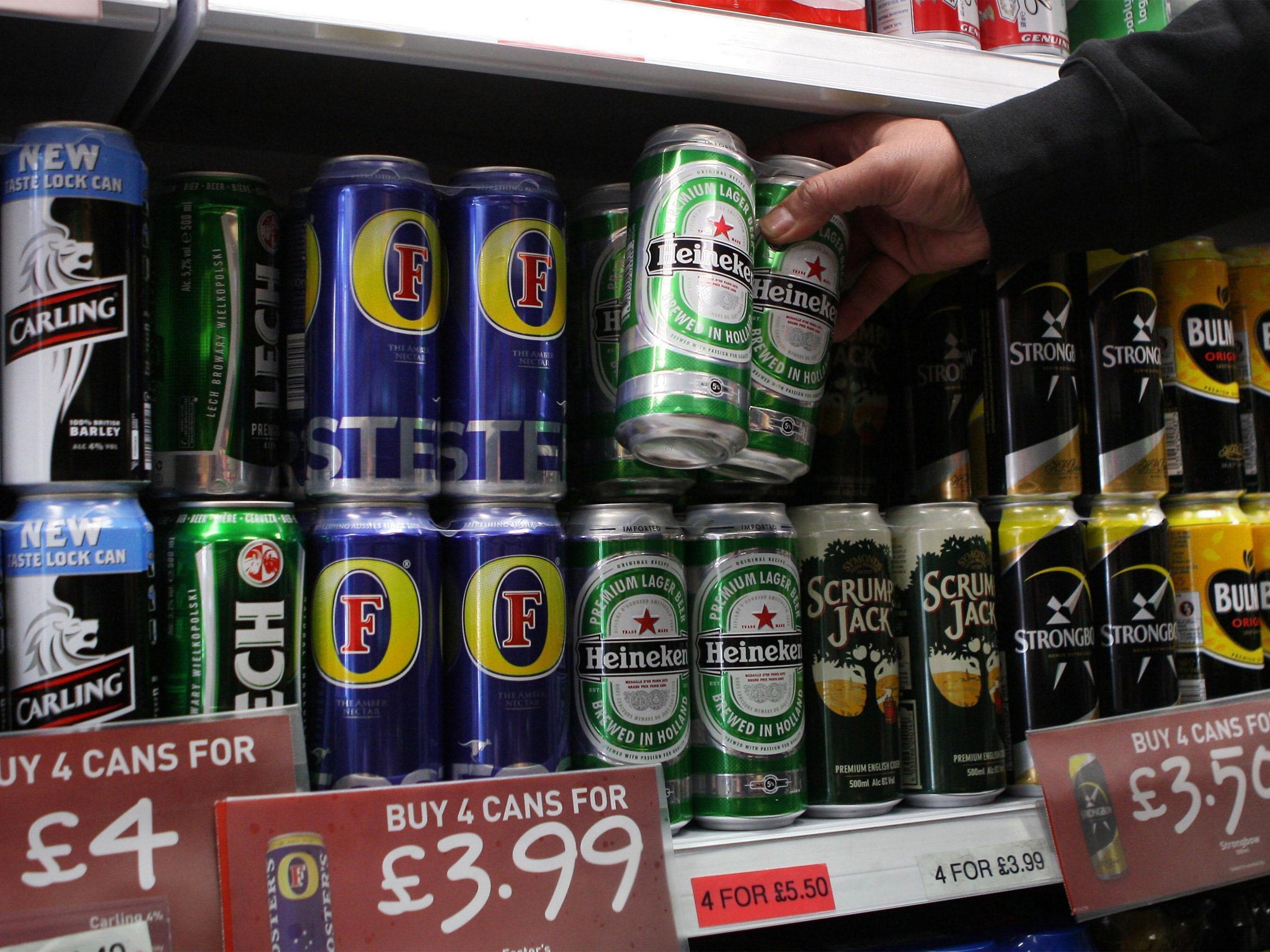Cabinet split over plans for levy on alcohol
Research shows public is sceptical that minimum pricing would reduce alcohol consumption and feared it would punish moderate drinkers

Your support helps us to tell the story
From reproductive rights to climate change to Big Tech, The Independent is on the ground when the story is developing. Whether it's investigating the financials of Elon Musk's pro-Trump PAC or producing our latest documentary, 'The A Word', which shines a light on the American women fighting for reproductive rights, we know how important it is to parse out the facts from the messaging.
At such a critical moment in US history, we need reporters on the ground. Your donation allows us to keep sending journalists to speak to both sides of the story.
The Independent is trusted by Americans across the entire political spectrum. And unlike many other quality news outlets, we choose not to lock Americans out of our reporting and analysis with paywalls. We believe quality journalism should be available to everyone, paid for by those who can afford it.
Your support makes all the difference.Moves to introduce minimum pricing for alcohol face a backlash from the drinks industry, economists and even Cabinet ministers.
David Cameron is championing the plan in an effort to reduce binge-drinking and alcohol-fuelled crime and improve public health.
The Home Office will set out proposals this week suggesting the price could be fixed at 40p, 45p or 50p per unit of alcohol, while the Treasury wants a single price to be proposed. A consultation document will also promise to tackle loss-leading "buy one get one free" offers on alcohol promoted by supermarkets.
However, the Prime Minister has run into Cabinet opposition, with Michael Gove, the Education Secretary, and Andrew Lansley, the Commons leader, understood to have argued that responsible low-income drinkers would be penalised. The Treasury has also raised fears that revenue from alcohol duty could suffer if the unit price was too high, while government lawyers are examining whether the move might break EU trading laws.
Research published in the journal BMC Public Health yesterday concluded that the public was sceptical that minimum pricing would reduce alcohol consumption and feared it would punish moderate drinkers.
Miles Beale, the chief executive of the Wine and Spirit Trade Association, said there were "serious questions about who [Mr Cameron] is listening to and why he is pushing ahead with it".
A report from the Adam Smith Institute, a free-market think-tank, said the plan was based on "false assumptions and wild speculation" and might have no effect on binge-drinking levels.
Join our commenting forum
Join thought-provoking conversations, follow other Independent readers and see their replies
Comments